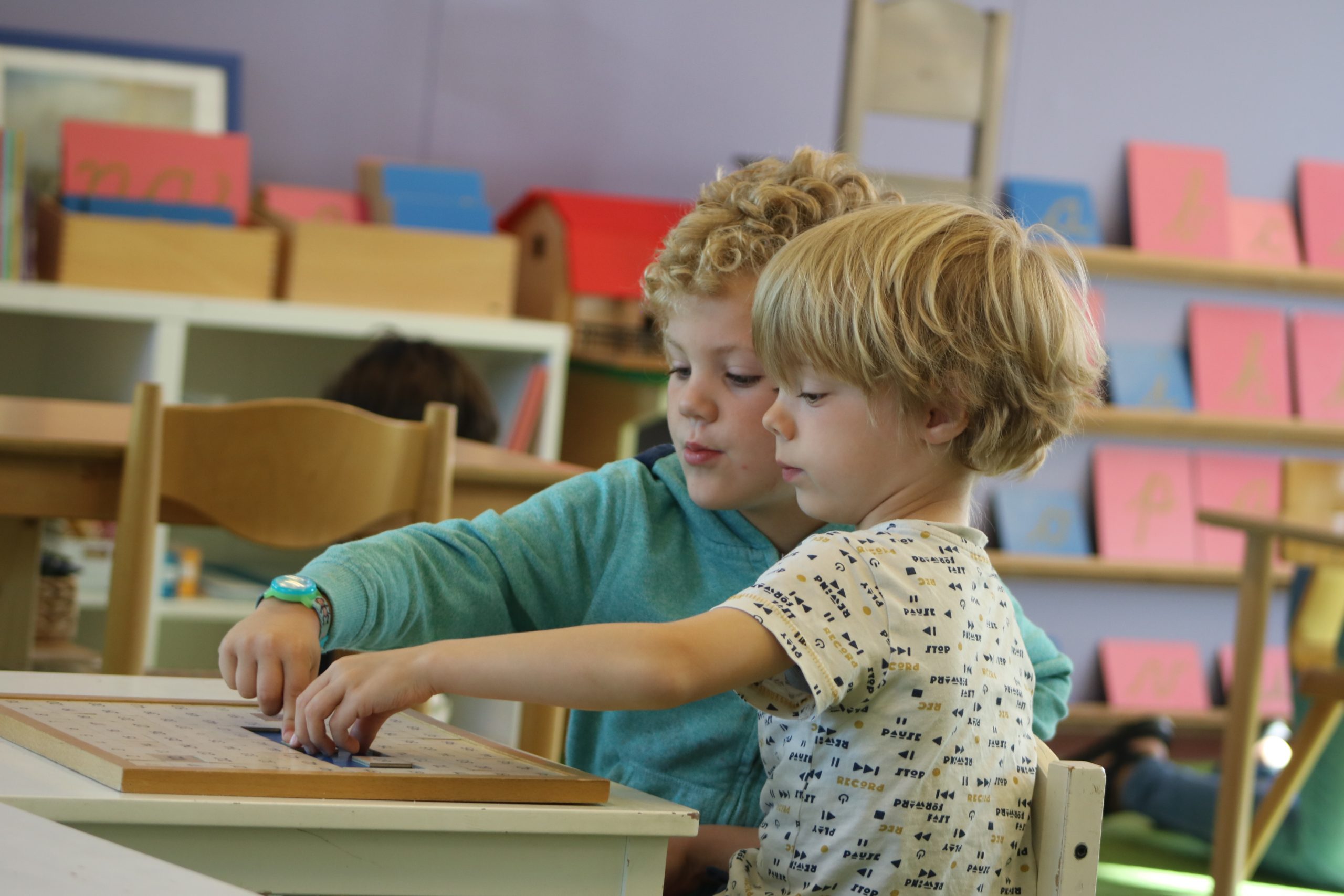
The Children’s House caters to children between 3 and 6 years of age.
Once children reach their third year of age, they are finally able to apply all the physical and mental skills they learned from before. At this point, the child switches from passive to active: “Please help me to do it myself.” At Casa, your children will be offered all the space and opportunity available to explore and discover the world around him or her. Your children’s quest for independence and self-reliance will be fully supported and encouraged, teaching them to take responsibility for their own actions.
Primary activities for children in the Children’s House consist of the following:
Language
Real-world experiences precede true lingual development, so the pre-school and kindergarten students are given as many opportunities as possible to discover the world around them before introducing new words to expand their vocabularies. To facilitate this, much effort is taken to expose the children to the spoken language via different tasks. Children receive guidance in enunciation and pronunciation, which are followed by lessons in symbols and letters. This allows children to write letters and numbers before knowing how to read.
Progress in reading becomes rapid once children reach their fourth year of age, as they quickly learn to link sounds and spoken words to specific letter groupings. To encourage this, they are given more reading materials that also contain introductory knowledge of biology, geography and history. This gives them a head start on the more in-depth lessons they will receive on these subjects in their later elementary and high school classes.
Arithmetics
The way the Montessori curriculum teaches arithmetic is fascinating – it is a specially designed method that allows children to easily come to grips with the concrete fundamentals of arithmetics. The process then leads the child step-by-step from the concrete to the abstract. Even five year olds can accomplish exercises with numbers ranging up to the tens of thousands without a sweat by using the material offered.
During their classes, the children will learn to perform the four basic arithmetic operations (Addition, Subtraction, Multiplication, Division) at will, whether on paper or in their head. Thanks to the educational material offered, the students will have an excellent foundation to build upon for their later studies.
Practical skills and exercises
In the Children’s House, children are taught to apply and refine their fine motor skills via practical skills and exercises. Adults are constantly adapting and modifying their surroundings, and children love to copy this behavior. They enjoy clearing tables and windows, sweeping floors, and caring for plants and animals. They also delight in helping in the kitchen, assisting in the preparation of fruit and vegetables, baking bread and serving their fellow classmates and friends. Through these lessons, their fine motor skills are given opportunity to develop, as well as showing them the direct effects of their actions on their environment. This teaches them to concentrate on their work, expand their attention span, and take responsibility for their actions.
Expression
In the Children’s House the children learn to truly come to grips with the world around them. It is also when the children are first able to actually manipulate his environment, allowing them to create their own personal little vision of the world. We offer students a wide array of materials and opportunities for them to express themselves. Children will be taught and encouraged to find their own methods of expression, such arts and crafts, painting, drawing, dancing, singing and so much more.
Intellectual Apprenticeships
Casa also offers children from Primary Education an opportunity to become so-called “Intellectual Apprentices”. Since primary and elementary grade students are housed on the same premises, the older primary education students are encouraged to visit and mingle with elementary students as they go about completing their work. It is not a strange sight to see the students from Elementary classes helping and teaching the younger ones, much like a Master or Journeyman would teach and help their apprentices. This not only gives the “Apprentices” a valuable leg up in their own studies, it also provides the “Masters” and “Journeymen” with important insights regarding their knowledge and social skills.
Every primary education group has its own regular guidance team.